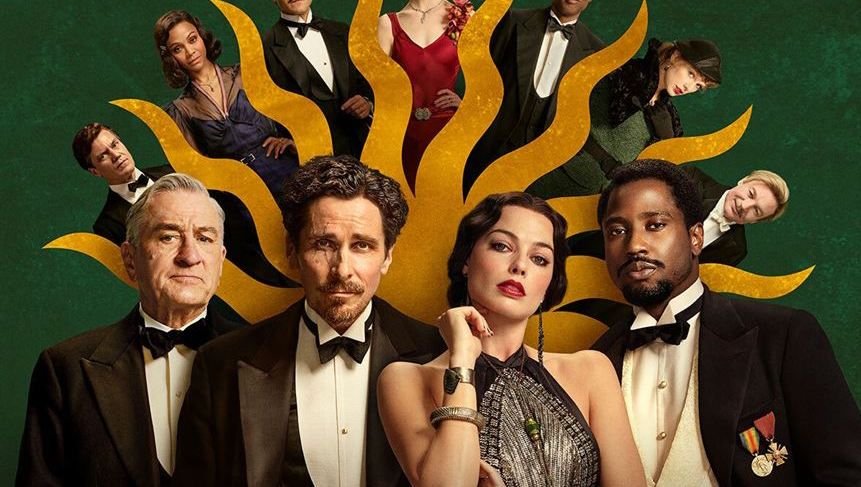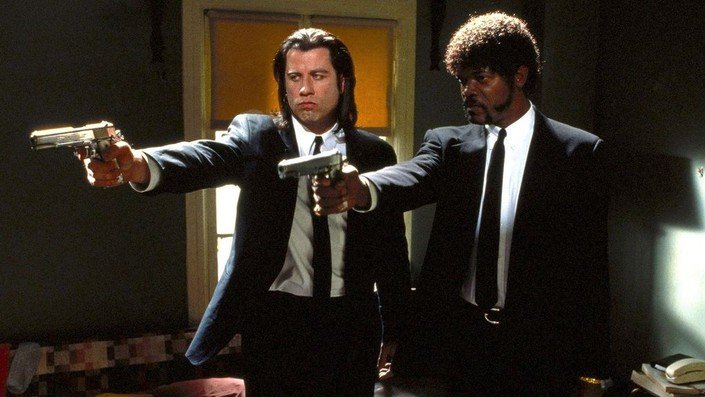
When a film boasts an ensemble cast as impressive as the one assembled for David O. Russell’s latest offering, Amsterdam, expectations are understandably high. With Christian Bale, Margot Robbie, John David Washington, Chris Rock, Anya Taylor-Joy, Zoe Saldaña, Taylor Swift, and a host of other A-list stars, the stage is set for a cinematic tour de force. However, as our reviewer discovered, the final product is a far cry from the grand, sweeping epic one might expect.
A Star-Studded Cast, But a Lackluster Script
The premise of Amsterdam is intriguing enough – a trio of friends, played by Bale, Robbie, and Washington, witness a murder in the 1930s and find themselves at the center of a vast conspiracy. This setup, combined with the impressive ensemble, should have been a recipe for success. Unfortunately, as our reviewer notes, the script simply doesn’t live up to the hype.
“The script of Amsterdam is so flimsy that it has to lean on the truth of a type of humor that has already worked in David Russell’s filmography,” the reviewer explains. “And even then, with this comedic approach, he often manages to get good results and generate expectations, which was my case with Amsterdam.”
The reviewer goes on to highlight the film’s lack of a cohesive narrative, with the story jumping between various time periods and plot points without a clear sense of direction. “You start with an autopsy, then move to a street crime, then to an office, then to World War I, then to a hospital. There are many things, a lot of confusion, and the organization and arrangement of all this was not well done.”
Wasted Opportunities and Unbalanced Storytelling
One of the most frustrating aspects of Amsterdam, according to the reviewer, is the way in which the film squanders the talents of its impressive cast. Characters played by acclaimed actors like Michael Shannon and Chris Rock are either underutilized or disappear from the story altogether, leaving the viewer with a sense of disappointment.
The reviewer notes that the film’s unbalanced storytelling is a significant issue, with certain characters and plotlines receiving far more attention than others. “There are characters that have importance, like Michael Shannon’s, and they disappear from the story. Chris Rock disappears from this story for several moments, and then suddenly reappears. It seems that there were blocks that were removed, and it didn’t look good.”
This lack of narrative cohesion is particularly problematic given the film’s ambitious scope and the high expectations set by its star-studded cast. As the reviewer observes, “You start to wonder, ‘How can a movie with so many big names in the cast and such a talented technical team go wrong?’ The answer is simple: if the script isn’t good, it can all fall apart.”
A Missed Opportunity to Explore a Fascinating Historical Conspiracy
One of the more intriguing aspects of Amsterdam is its exploration of a real-life historical conspiracy – the so-called “Business Plot” of the 1930s, in which a group of wealthy industrialists allegedly plotted to overthrow the U.S. government. This premise, combined with the film’s period setting, should have provided a rich tapestry for the story to unfold.
However, the reviewer argues that Russell’s focus on the film’s comedic elements ultimately undermines the potential of this historical backdrop. “The script of Amsterdam seems to desperately need a relaxed narration, and I mentioned this on Twitter because this relaxed narration would also be responsible for closing script holes. The strangest thing about all this, in my opinion, is that it doesn’t manage to give, perhaps, a basic premise of what a great crime might have happened, because it desperately seeks the connection between the past and the present, from a case from World War I to a case in the 1930s.”
The reviewer goes on to suggest that the film’s final five minutes, which offer a glimpse into the true scope of the historical conspiracy, are the most compelling part of the entire movie. “What was presented in the final five minutes of Amsterdam would have made for a great film. It’s a shame that this film is not Amsterdam.”
A Technical Triumph, But a Narrative Disappointment
While the reviewer is largely critical of Amsterdam‘s storytelling and character development, they do acknowledge the film’s technical achievements. The attention to detail in the period recreation, from the vehicles and costumes to the makeup and production design, is praised as a highlight of the film.
However, the reviewer argues that these technical strengths are ultimately overshadowed by the film’s narrative shortcomings. “I value the work of reconstructing this 1910s and 1930s period very much, but unfortunately, it is not well articulated in the narrative.”
The reviewer’s overall assessment of Amsterdam is one of disappointment, with the film failing to live up to the promise of its impressive cast and intriguing premise. “It’s a shame that Amsterdam asks for so much effort, from the moment David Russell puts the condition of also using comedy. This is a serious problem for Amsterdam. It’s a frustrating and disappointing film, with a poor editing, but it has an interesting technical work in terms of makeup, costumes, and production design.”
A Missed Opportunity, But Not Without Redeeming Qualities
While Amsterdam may not be the grand, sweeping epic that many had hoped for, the film does have its redeeming qualities. The technical achievements, particularly in the areas of period recreation and design, are undeniably impressive. And the film’s exploration of a real-life historical conspiracy, however underdeveloped, is an intriguing premise that could have yielded a more compelling narrative in the hands of a more skilled storyteller.
Ultimately, Amsterdam stands as a missed opportunity – a film that, with its impressive cast and talented creative team, should have been a cinematic triumph, but instead falls victim to a lackluster script and unbalanced storytelling. As the reviewer notes, the film’s final five minutes offer a tantalizing glimpse of what could have been, leaving the viewer to wonder what might have been had David O. Russell and his team been able to fully realize the potential of this ambitious project.


